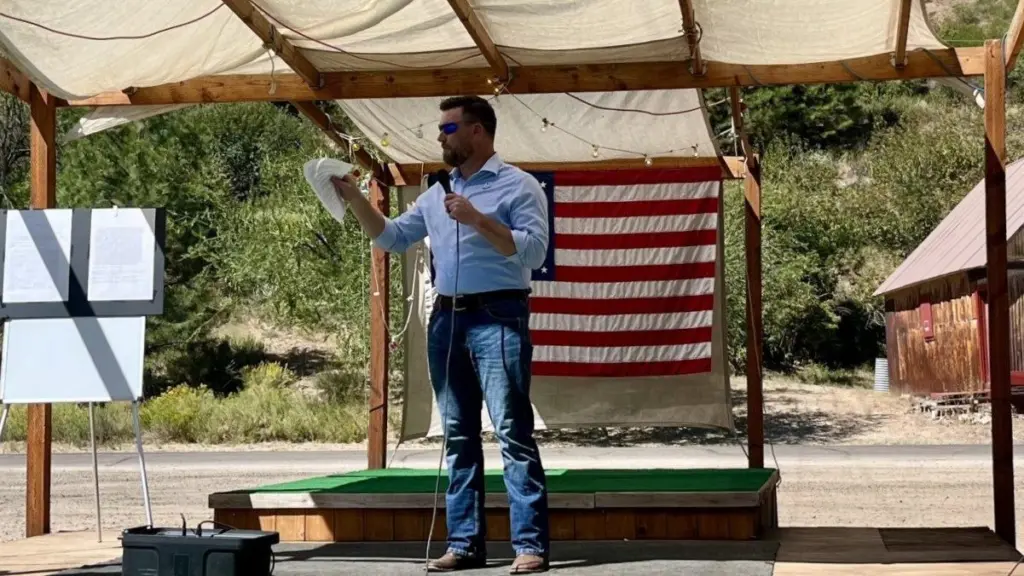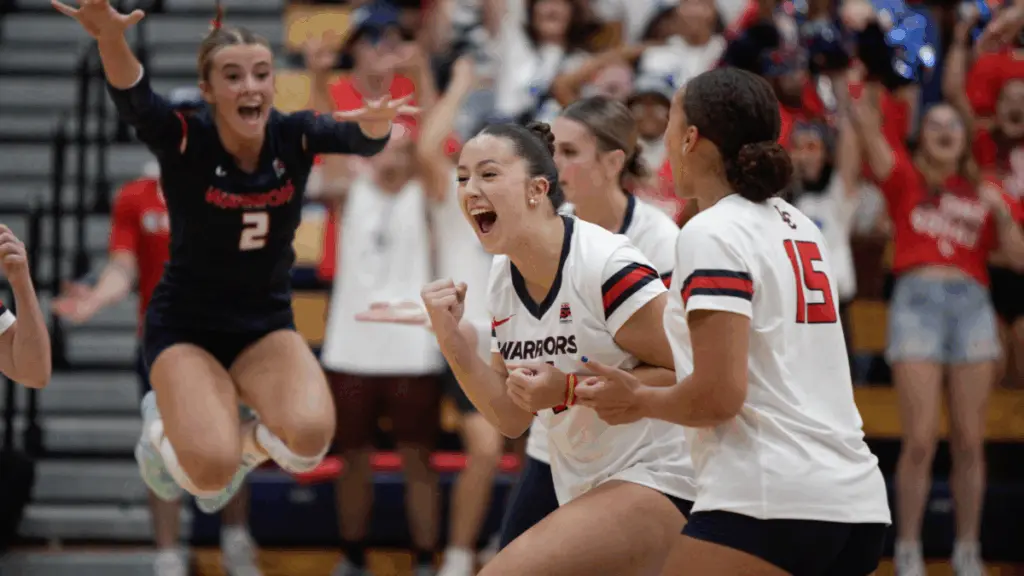In September 2023, former Governor Jay Inslee talks with Ferndale Superintendent Kristi Dominguez, center. Dominguez is one of 20 superintendents in Washington who are working to change the way the state finances schools. (Cascadia Daily News/Hailey Hoffman photo)
Cascadia Daily News was the original publisher of this article.
Following years of financial difficulties facing school districts, a coalition of education experts is attempting to reform Washington’s K–12 finance structure.
There are two superintendents participating from Whatcom County. Founded last summer by Yakima Superintendent Trevor Greene and Bellevue Superintendent Kelly Aramaki, the organization is being joined by Meridian Superintendent James Everett and Ferndale Superintendent Kristi Dominguez.
We are aware of the issue, and we can either sit down and say, “This isn’t working,” or we can keep admiring it and discussing it, Dominguez added.
According to Seattle Times reporting, Aramaki’s experience having to make significant budget cuts over the past few years served as the impetus for the group’s founding. Due to severe economic difficulties, Bellevue is now subject to legally enforceable agreements with the state, joining seven other districts—including Mount Baker—that are under state financial supervision.
The superintendents claim that illustrates the scope of the issue. And that doesn’t even account for the numerous other districts, including Blaine, Bellingham, and others, that are suffering severe budget cuts in order to evade state financial scrutiny. This year, Ferndale cut $6 million from its spending plan. Meridian cut $2 million the previous year and $1 million this year.
It is evident to Dominguez and Everett that the existing funding approach is ineffective.
According to Dominguez, there is a problem with the system. We simply want to know what new system we should investigate.
They claim that the primary problem is that the state barely covers the costs that the schools must bear. Funding hasn’t kept up with rising expenses and student requirements.
Originally drawn from the alumni network of the University of Washington, the superintendents have subsequently grown to include over 20 superintendents around the state. They are collaborating with professors David Knight, Anthony Craig, and Mia Tuan of the University of Washington College of Education.
According to Knight’s research, Washington finances schools using a resource funding approach that bases distributions on a number of student-staff ratios.
However, a lot of other states take a student-based approach. Districts are given a base amount of money per student under that system, with extra money going to students who require particular support services, are low-income, or are multilingual. The amount of money the district receives from the state is then calculated by multiplying that by the number of students enrolled in the district.
Because the money follows the adults in Washington and the pupils in other states, Dominguez made the system simpler.
In local districts, for instance, the state funds Ferndale’s hiring of seven paraeducators for the entire district. “But we need much more than that just to cover lunch duties, before or after school, and playgrounds in the district with 4,600 students,” Dominguez added. According to Everett, the state covers half of a nurse’s salary in the Meridian School District.
According to Everett, schools are working really hard to continue meeting the requirements of students in spite of the funding problems. However, the amount of funds is decreasing.
There are also problems with the way local levies are set up.
According to Everett, you will be better able to obtain funding with less of an influence on your neighborhood if your property has a higher assessed value.
Property-poor districts must have higher tax rates to raise significantly less money than districts like Seattle, which may levy levies that generate hundreds of millions of dollars at a minimal cost to the individual taxpayer.
Property-poor and property-rich districts now have conflicting objectives. However, the goal is to develop a plan that benefits all parties, Everett stated.
According to Everett, the most important lesson he learned from the experience was that no district, not even Bellevue, which has a high assessed value, has it figured out.
The goal is to have a concrete proposal ready to move ahead by their next meeting in October, according to Everett.
According to Dominguez, we are currently in a crisis in many respects, and our children will suffer as a result. When do we simply say, enough? We must take the initiative.
Charlotte Alden, the general assignment/enterprise reporter for CDN, can be reached at 360-922-3090 ext. 123 or [email protected].
Bellingham, Washington’s Cascadia Daily News is a locally owned newspaper. You can subscribe and read more about the publication here.









